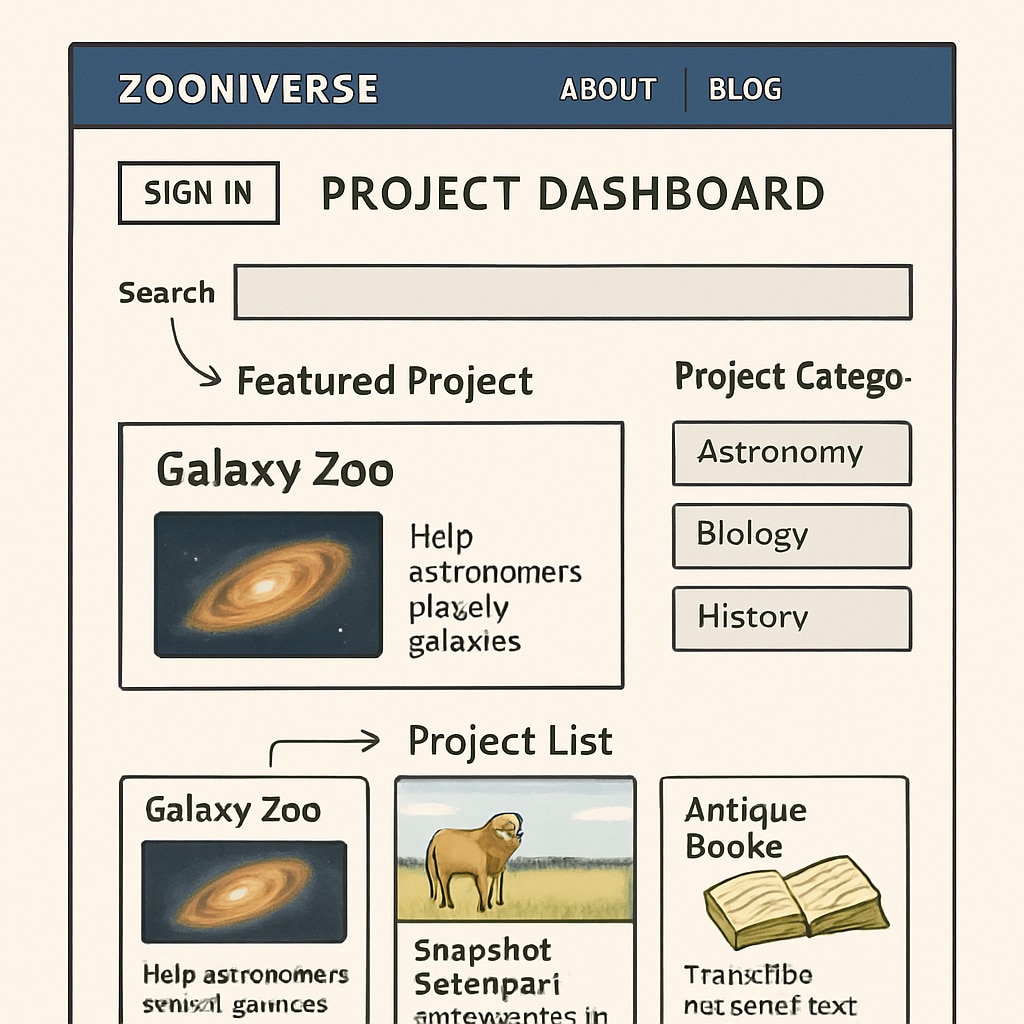The world of science is no longer confined to laboratories or the minds of professional researchers. With platforms like Zooniverse, K-12 students now have the opportunity to engage in citizen science projects, contributing to real-world research while enhancing their understanding of the scientific process. This revolutionary approach not only fosters scientific literacy but also allows students to play an active role in advancing global knowledge.
What is Zooniverse and How Does It Work?
Zooniverse, one of the largest citizen science platforms, connects everyday individuals with ongoing scientific research. From classifying galaxies to identifying wildlife patterns, Zooniverse offers a wide array of projects across various disciplines like astronomy, biology, and history. The platform simplifies complex data into manageable tasks, making it accessible for students and educators alike.
For example, in the “Galaxy Zoo” project, participants help classify images of galaxies captured by telescopes. In the “Snapshot Serengeti” project, volunteers identify animals in camera trap photos from Africa. These activities require no prior expertise, making Zooniverse an inclusive tool for learners of all ages.

Why Bring Citizen Science into K-12 Classrooms?
Integrating Zooniverse into K-12 education offers numerous benefits:
- Real-World Application: Students work on authentic scientific data, bridging the gap between theoretical learning and practical experience.
- Skill Development: Engaging in projects hones critical thinking, data analysis, and problem-solving skills.
- Empowerment: Students gain a sense of accomplishment by contributing to meaningful research.
- Global Awareness: Many projects address pressing global issues, fostering a sense of responsibility and connection to the world.
Moreover, Zooniverse projects are highly adaptable, allowing educators to align activities with curriculum goals. For instance, biology teachers can incorporate wildlife studies, while history teachers might explore ancient texts through transcription projects.
How to Get Started with Zooniverse in the Classroom
Introducing Zooniverse to your classroom is simple and requires minimal resources. Follow these steps to get started:
- Explore Projects: Visit the Zooniverse website to browse available projects. Select one that aligns with your lesson plan or student interests.
- Create Accounts: Encourage students to create free Zooniverse accounts, so they can track their contributions and progress.
- Set Goals: Define clear objectives for the activity. For instance, aim to classify a certain number of images or identify a specific pattern.
- Facilitate Discussion: Use the project as a springboard for classroom discussions. What did students learn? What challenges did they encounter?
Additionally, Zooniverse provides resources and tutorials to help educators integrate its projects effectively. Many projects also include forums where students can interact with researchers and other participants, further enriching their experience.

The Impact of Citizen Science on Global Research
Citizen science platforms like Zooniverse have had a profound impact on global research. For example, participants in the “Galaxy Zoo” project have contributed to the discovery of new astronomical phenomena. Similarly, the “Penguin Watch” project has provided valuable insights into penguin populations, aiding conservation efforts.
By involving students in these initiatives, we not only enhance their education but also amplify the reach and impact of scientific research. According to a Wikipedia article on citizen science, these projects democratize science, allowing diverse perspectives to shape discoveries.
Conclusion: Empowering the Next Generation of Scientists
Incorporating Zooniverse into K-12 education is more than just a teaching tool; it’s a gateway to lifelong scientific curiosity and global citizenship. By participating in citizen science projects, students develop essential skills, gain real-world experience, and contribute meaningfully to the world of science.
For educators, Zooniverse represents a unique opportunity to inspire and empower the next generation of scientists. Start exploring the platform today, and watch your students transform into active contributors to global research.
Readability guidance: This article balances technical precision with accessibility, ensuring K-12 educators and students can easily engage with the content. Short paragraphs, clear headings, and actionable steps enhance usability.


